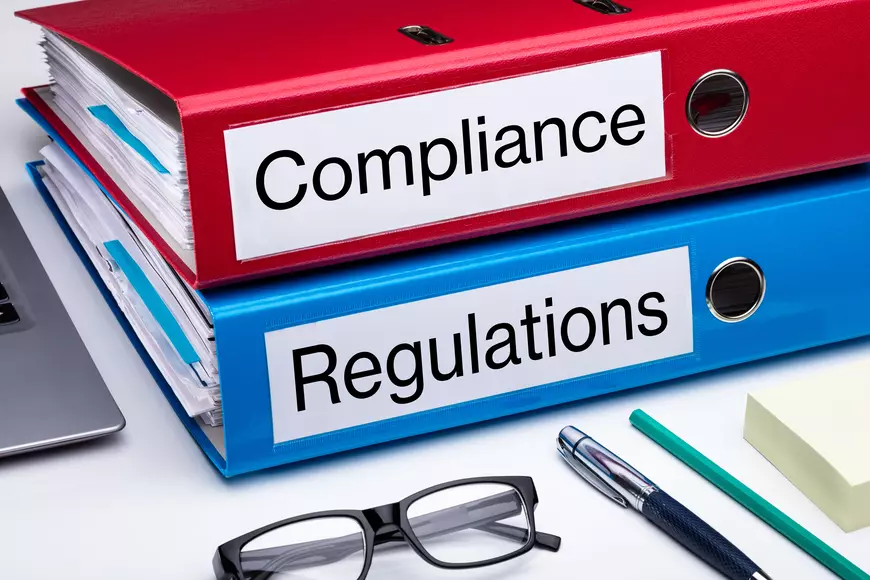
Regulatory compliance is a crucial element in construction that affects every phase of a project. It involves following various laws and standards set by important government and industry-leading bodies. This array of regulations is designed to ensure things like safety, quality, and environmental protection within a project.
Achieving and maintaining regulatory compliance can be challenging but doing so is crucial both to ensure the benefits we just mentioned – and to avoid legal issues, reputation hits, and costly fines.
Today, we’re discussing everything you need to know about regulatory compliance in construction. Learn more about myCOI’s resources, certificate of insurance services, and more at our website, or keep reading to learn how you can ensure compliance.
What Is Compliance in Construction?
In construction and other industries, compliance plays an important role in keeping projects going smoothly and safely.
We often refer to compliance generally, which includes both contract compliance and regulatory compliance. Contract compliance means the adherence to a contractual agreement with another business party, whereas regulatory compliance refers to following rules set out by the government and regulatory agencies. Both are important to meet in order to avoid unexpected risks and liabilities, legal disputes, and reputational damage.
The roles and responsibilities in maintaining compliance are spread between various stakeholders, including project managers, compliance officers, contractors, and subcontractors. These roles involve monitoring the project’s adherence to regulations, conducting regular inspections, and ensuring that all workers are informed about compliance in the construction industry requirements and trained to meet them.
What Is Considered Regulatory Compliance?
Regulatory compliance is extremely important, both to ensure that a project meets necessary quality standards and to keep workers and other stakeholders safe during a job.
Some general regulatory bodies involved in overseeing compliance in construction include the Occupational Safety and Health Administration (OSHA), the Environmental Protection Agency (EPA), and state building departments. These bodies establish and enforce regulations that construction companies must follow.
Some other key regulations in the construction sector include those set by the International Building Code (IBC), the National Electrical Code (NEC), and various local building ordinances.
What Is an Example of Compliance With Regulations?
Let’s walk through a case study to illustrate what regulatory compliance in construction actually looks like. A construction company is attempting to begin a new high-rise project in New York City. Given the location, dense population, and potential environmental impacts, the project is subject to many regulations to ensure worker safety.
To achieve compliance, the company implemented various strategies. First, they used contract compliance checklists to outline everything they needed to do to obtain and maintain adherence. To address noise ordinances and air quality standards, they installed noise barriers and used low-emission construction equipment. They also conducted regular safety drills and training sessions for workers to ensure safety protocols, especially at those heights. Finally, they maintained detailed records of all compliance activities, such as safety inspections and relevant meetings, which would be necessary for any audits or inspections conducted by regulatory bodies.
Unfortunately, the company still faced challenges, including delays when their compliance inspections revealed a few issues with adherence. However, these delays were light compared to the consequences of non-compliance, which would have likely included hefty fines, potential legal action, a reputational hit, and more. Thankfully, they did their due diligence and reaped the rewards.
What Is Regulatory Compliance in Project Management?
Teams are increasingly integrating compliance measures into their project management efforts to ensure regulatory compliance. This integration helps build compliance checks into every phase of a construction project and ensures that all activities adhere to relevant laws and regulations, minimizing the risk of non-compliance.
Many tools and methods exist to assist with ensuring compliance. For example, compliance checklists help project managers keep track of all necessary regulations and ensure that nothing is overlooked. Digital solutions like automated software can automate compliance requirement tracking, making it easier to monitor compliance status across workers and projects. Finally, regular audits, conducted either internally or by third-party auditors, are great ways to identify areas of non-compliance and provide an opportunity for swift, corrective action.
There are many challenges teams can face in construction project compliance. For example, keeping up with regulations is often difficult, as they can vary widely between jurisdictions and are updated to reflect new safety standards and environmental concerns. Additionally, when managing various contractors and subcontractors, ensuring compliance for all parties can be resource-intensive and require clear communication and strong project management.
Reach Regulatory Compliance Every Time
Regulatory compliance in construction is a hugely important concept that aims to keep workers, projects, the environment, and the general public safe. Achieving compliance can be challenging, but it is essential for avoiding legal issues, financial penalties, and more.
By gaining a general understanding of regulatory compliance in construction, as well as the specific rules, guidelines, and local ordinances you must follow to achieve it, you can ensure that your team successfully completes projects while meeting necessary requirements.
Ensure compliance every time with a team of experts by your side. Book a demo today to learn more.